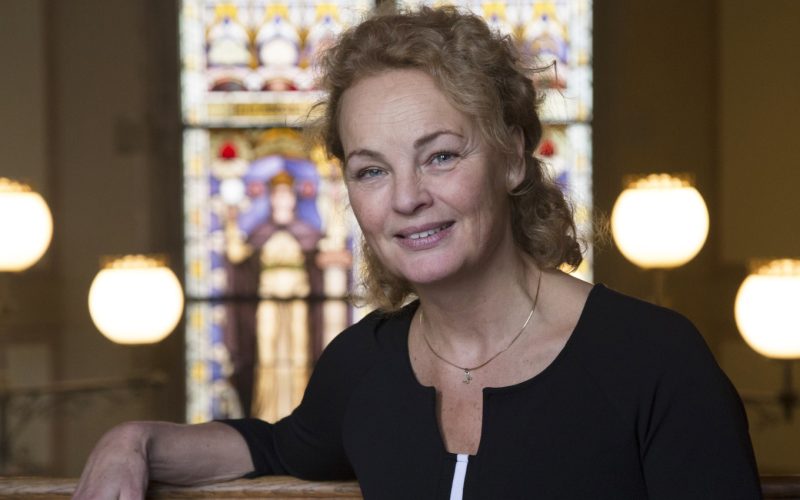Annet van Royen-Kerkhof, professor of Interdisciplinary Education in Medicine, delivered her oration on Friday 20 September, entitled ‘The New Utrecht School’. A speech about research into new forms of education to train medical students to become doctors with a broader view of society.
Annet notes in her talk that the social issues facing us are complex. ‘We see an increase in the complexity of problems in healthcare: ageing, obesity, increase in mental health issues, the effects of climate change on health. This requires collaboration with different disciplines to come up with good solutions.’
According to Annet, uncertainty is part of finding solutions to complex problems. ‘Doubting is also looking for the right thing. Relating to uncertainty is a factor you can practice within interdisciplinary educational projects. As is speaking each other’s language. We need doctors trained as creative problem solvers. Professionals who can think critically, who take responsibility for themselves and society, who have communication and technical skills. Actively involved in major societal challenges within the health domain.’
In her oration, Annet looks back at the birth of the ‘Utrecht School’, a movement in which Utrecht scientists put people more at the centre. This internationally recognised network in which different disciplines worked together was active until the mid-1960s.
She also talks about the ‘New Utrecht School’. Which she, together with Stefan van Geelen and Gaston Franssen, has been involved in from the start. An innovative collaboration between different disciplines in training healthcare professionals, which was established in 2017. Annet has been training director of Medicine within UMC Utrecht/UU since May 2021. She succeeds Tineke Westerveld with whom she worked closely. Tineke passed away unexpectedly in December 2020. Annet: ‘Tineke considered interprofessional education to be a mission and I will take her thoughts with me in the current developments.’ In a time of polarisation, Annet indicates that seeking the path of dialogue is her way of dealing with complex issues. And that this approach and way of working requires skills, which students can develop in their education.
‘Changes in healthcare require doctors to be able to apply concepts, weigh new knowledge and work with professionals who think, see and speak differently. And to see opportunities rather than threats in the face of rapid (technological) change.’
Within UMC Utrecht, the urgency of this is recognised by, for example, dean Arno Hoes and vice-dean Berent Prakken. The UU has also appointed a dean and programme manager to develop a clear vision of interdisciplinary education, encourage interfaculty cooperation. Annet: ‘From the Faculty of Medicine, among other things, I have been involved in the realisation of two UU programmes that are interdisciplinary from the ground up: the Bachelor’s in Care, Health and Society (with the Faculty of Veterinary Medicine and the Beta Faculty/ Pharmacy) and the Master’s in Medical Humanities (together with the Faculty of Humanities). Both programmes are now successfully running for their third year. We train students who have a combination of scientific knowledge, compassionate insight and future-proof skills.’
Annet believes that the relationship between the medical sciences, humanities, arts, law and social sciences is particularly important right now for meeting the challenges facing healthcare. In the current political situation, she wants to stress how important the arts are for our society, and certainly for healthcare, for being able to understand each other, to find language. ‘Medicine cannot develop in complete isolation from the other sciences. Doctors of the future collaborate with other disciplines and do not retreat to their own island.’
Annet emphasizes that the effects of interdisciplinary collaboration are then also studied. ‘In collaboration with other disciplines, the process is important. We already see in research that this kind of collaboration also leads to real and unexpected solutions to problems and a better quality of care. With more consideration for the patient.’
